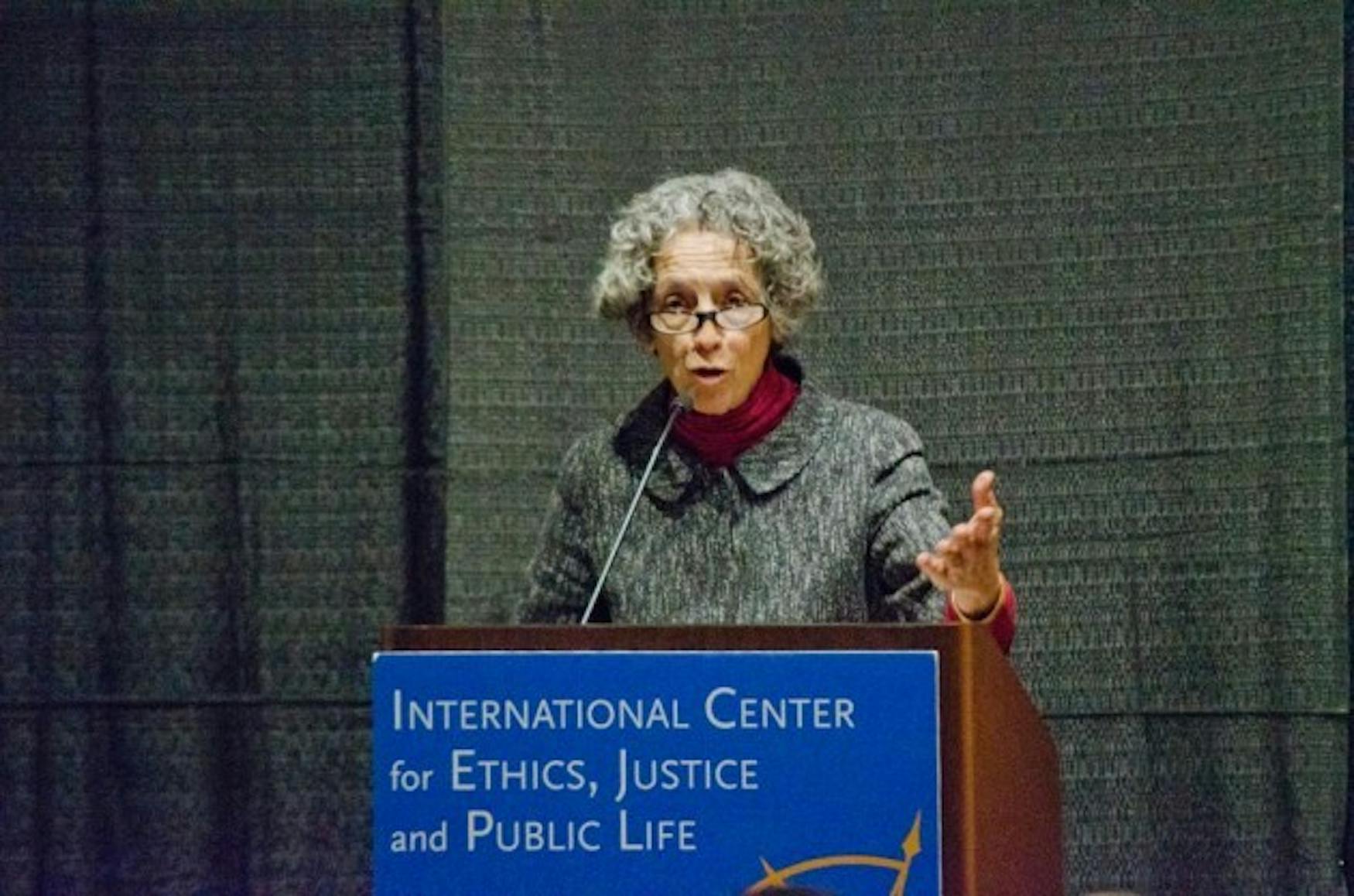Messinger delivers keynote
Messinger then took the stage, stressing a few main themes throughout her address.
"As AJWS grows," she said, "we need to find more grassroots organizations to give them more help for what they need to make them more efficient." Messinger continued, "We need to extend our reach and commitment to the people here."
Messinger went on to emphasize the interdependency of today's world and the importance of local and global reach.
She emphsized the fact that the awareness that one does not have all the answers is what will result in the ultimate benefit for both the organization and recipients of aid.
Prof. Larry Simon, director of the Sustainable International Development program at the Heller School for Social Policy and Management, and founder and former president of AJWS, followed Messinger's remarks with an address largely related to the significance of nature and the importance of a well-planned strategy.
Simon said that the "disaster" element of a natural disaster comes with poor planning.
According to Simon, since the people are already there, and the geographical predisposition is not going to change, it is a social imperative to improve the planning and implementations of strategies that surround natural disasters.
Simon continued to talk about poverty and developing adequate leadership in developing countries. He emphasized the importance of getting involved and continually referred to the science of economics, stating the "the world is not static."
Simon then opened the floor to student and audience questions.
In an interview with the Justice, Messinger spoke about the future of AJWS.
"We hope to keep growing as an organization in the Jewish community, motivated by the Jewish commitment to justice to help more and more people in the world realize their human rights," she said.
She concluded by saying that the AJWS plans to do so using grassroots projects and by mobilizing the American Jewish Community.
In an interview with the Justice, Ariel Milan-Polisar '14 spoke about the inspiration she drew from Messinger.
"The work that Ruth does is so inspiring, and her life is an example that is so incredible to college students that are looking to create their identities and figure out what's important to them."



Please note All comments are eligible for publication in The Justice.